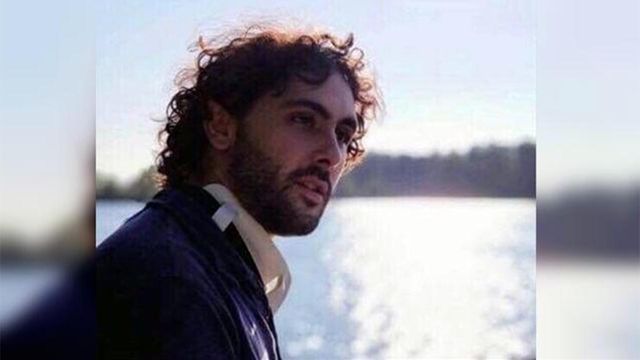Family of man killed by Raleigh police officer alleges chief fosters culture of excessive force
The family of a Raleigh man killed last year by a police officer alleges in a lawsuit filed Tuesday that Police Chief Cassandra Deck-Brown fosters a culture in the police department that encourages officers to use excessive force.
Posted — UpdatedSoheil Antonio Mojarrad's family is suing Deck-Brown, Officer W.B. Edwards, City Manager Ruffin Hall and the city of Raleigh, alleging civil rights violations, negligence, assault and battery and wrongful death. They are seeking unspecified damages.
Mojarrad's family said they don’t want his life to be in vain. Like many people who have been in the streets protesting the recent death of George Floyd in Minneapolis, the family said they believe that police departments need to change their policies and training on deadly force.
"Someone shouldn’t have to die, whether it’s my brother, George Floyd or someone else, for us to really pay attention to these things," Siavash Mojarrad said. "Now that it is and people are out in the streets marching, I think it’s really important that people do that, [that] people say, 'Hey, this is not the community we want to live in, Not how we want to have our civil servants treat us.'"
"It’s a pain and heartache I live with every day," Judy Mojarrad said of her son's death. "There’s days when I drive into work, and I cry all the way there, [then] pull myself together to do my job as an RN. I would not wish this on anybody."
"This was absolutely an excessive use of force," said Cate Edwards, the family's attorney, who is not related to W.B. Edwards.
"He was not a threat to the officer," Cate Edwards said. "He was 20 feet, at least 20 feet, away when he shot and killed him."
The lawsuit alleges that W.B. Edwards might have been nervous or aggressive because he took Adderall, an attention deficit disorder drug, on the night of the shooting.
"Even if Mr. Mojarrad had had a knife in his hand, he was not at a distance that he could have used it to exert serious bodily injury or deadly force on Defendant Edwards," the lawsuit states. "In addition, Mr. Mojarrad was not threatening Defendant Edwards, but rather was attempting to retreat from him while Defendant Edwards doggedly pursued him."
The lawsuit cites a list of unarmed people who have been killed by Raleigh police officers or died in custody since 1991, alleging that the policies of the Raleigh Police Department "were a driving force" behind Edwards' actions that night.
"The RPD culture fostered by Defendant Deck-Brown openly permits, and even sanctions, the use of force by officers in the field far beyond what is warranted or necessary," the lawsuit states. "[E]xtreme inaction at the top ... to properly deter and prevent police misconduct has had a deep, broad and dangerous ripple effect on the Raleigh Police Department."
Edwards also violated the department's use-of-force policy, according to the lawsuit, because he didn't first try to use non-lethal means to subdue Mojarrad and because deadly force is authorized in only limited circumstances.
Freeman declined to comment Tuesday on the lawsuit, as did spokeswomen for the city and the police department.
The Raleigh Police Protective Association, which represents Edwards, said he also was cleared of wrongdoing by the department and is back on the job.
Cate Edwards said an investigation into a lawsuit kicked into high gear after the officer was cleared, and Floyd's case shines a bright light on it.
Related Topics
• Credits
Copyright 2024 by Capitol Broadcasting Company. All rights reserved. This material may not be published, broadcast, rewritten or redistributed.






